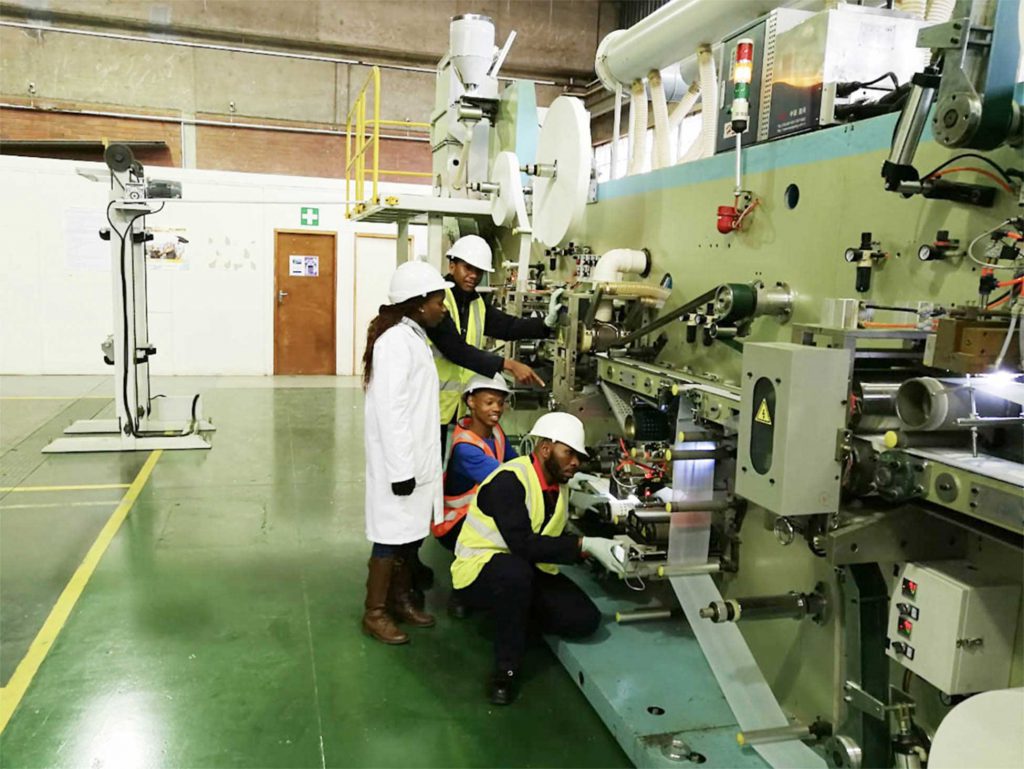Empowerment Government & Politics
Funding Empowerment
After 25 years of democracy, South Africa has failed to achieve meaningful transformation of ownership patterns within the commanding heights of the economy — the country’s largest companies that are listed on the JSE. These companies had a market capitalisation of R17.5-trillion at the end of September 2019.
While there was significant Broad-based Black Economic Empowerment (B-bBEE) deal flow until the start of the global financial crisis of 2008 to 2009, the pace of transformation has decelerated sharply over the past decade.
For various reasons, the movement to deracialise the economy is on its last legs and may never recover unless the government develops the political will to reimagine its B-bBEE policy framework.
The dramatic slowdown in B-bBEE transactions is partly because the majority of large JSE-listed companies have taken advantage of loopholes in B-bBEE codes and decided not to enter into replacement B-bBEE transactions after the exit of black shareholders. The government has effectively killed its own empowerment policy due to fatal flaws in the way it was designed. As a result, there has been a freeze in empowerment financing.
Typically, BEE transactions have seven to 10-year funding periods during which black shareholders are locked in and cannot sell their shares. At the end of the funding period, they can sell their shares to settle their debts. For the empowerment process to continue, companies should eventually enter into new transactions to replace the exited BEE partners.
Martin Kingston, the executive chairman of Rothschild, a global investment bank, says there has been more than R300-billion worth of B-bBEE transactions concluded by the top 100 JSE-listed companies since 2000. Kingston, who has advised on mega B-bBEE deals at companies such as Sasol and Anglo American over the past two decades, says the majority of transactions took place during 2002 to 2007 within the context of an attractive macroeconomic environment as corporates aimed to comply with legislation. During this period, there was rapid growth in the economy and soaring world commodity prices, which resulted in a boom on the JSE.
Kingston says there was a slowdown in activity between 2008 and 2010 due to the global financial crisis and the fact that many of the Top 100 JSE companies had already concluded their B-bBEE transactions. Over the next few years, there was a significant increase in regulatory policies, which resulted in uncertainty about implementing B-bBEE. There was also an increase in the unwinding of previous transactions. The poor performance of the economy saw a large number of transactions maturing in a downward cycle, which severely impacted on net value created after taking into account funding costs.
Empowerment fatigue
In this environment, there is now little appetite to do more B-bBEE deals unless there is a need to top-up previous transactions or restructure them.
“There is now empowerment fatigue and companies are reluctant to again go through these time-consuming and complex processes of structuring B-bBEE transactions that do not achieve the intended objectives. Unless there is a material outperformance of target companies against the cost of capital, there is very little left on the table for black people. Also, against a background of poor economy and a bleak outlook over the next few years, few companies or financiers are eager to take risks and incur the significant costs that are involved in putting together B-bBEE transactions. There has been a significant dissipation of funding sources,” says Kingston.
A weak economy
To illustrate how the performance of the economy and the stock exchange impacts on BEE transactions, Kingston shows what would have hypothetically happened if a BEE consortium had bought 25 per cent of all JSE companies in 2006 with a 10-year lock-in period. The consortium would get a 30 per cent discount, equivalent to 7.5 per cent net value created at inception, and 100 per cent debt-funding at 50 basis points above the prime interest rate. There was an average dividend yield of 2.5 per cent and a compound annual growth rate (CAGR) of shares of 10 per cent. In this relatively favourable example, the net value of the BEE consortium would have increased by only 0.7 per cent to 8.2 per cent at the end of 2016. In the mining industry, where there was a CAGR of 3.5 per cent over the same period, zero net value would have been created at the end of 2016.
Kingston says such unsustainable funding structures have limited net value created for black shareholders and resulted in a diminishing pool of available capital. These structures were overly reliant on complex third-party funding with limited flexibility to exit transactions when conditions were favourable. The eventual black shareholding was insufficient to exert meaningful influence over investee companies. In the current environment of low growth, it will be difficult to achieve transformation.
“We have to take stock and evaluate what worked and what did not work. There has to be a greater focus on active ownership and wealth creation as opposed to passive ownership and wealth transfer,” he says.
Mazvita Maradzika, the executive director of Siyakha Capital Advisors, says the slowdown of B-bBEE transactions over the past decade has been a function of the poor state of the economy, which affected all mergers and acquisitions (M&A).
“Also, low economic growth means that there are fewer companies that are doing well and paying healthy dividends that will make it possible to structure B-bBEE transactions. There are fewer new B-bBEE companies.”
Opportunities
She says there have been opportunities recently in manufacturing, due to the government’s localisation policies, which create incentives to procure South African goods and services, and the Department of Trade and Industry’s Black Industrialists Programme.
“I have seen some multinationals that were reluctant to do transactions changing their minds,” she says.
Over the past four years, the Industrial Development Corporation (IDC) has provided funding of R21.4-billion for black industrialists. In his budget vote in July 2019, Trade and Industry Minister Ebrahim Patel said the IDC would provide additional funding of R40-billion to 400 black industrialists over the next five years. This will include R10.-billion in funding for women-empowered businesses and R5.5-billion for youth-empowered businesses. However, R8-billion a year will not shift the needle and decisively transform ownership in the economy.
To stimulate a new wave of post-apartheid B-bBEE transactions, the government must develop a plan to grow the economy again. The majority of net value created for black people over the past 25 years was generated during a five-year period when the economy grew rapidly. Without growth, there cannot be ownership transfer. The government must also develop the political will to reverse all the major policy impediments — compromises that were made during the drafting of the B-bBEE Codes and sector charters such as the once-empowered, always empowered principle — that have contributed towards the freeze in empowerment financing.
The government could introduce a maximum period — of up to three years — during which companies would continue to earn points after the exit of black shareholders. This would give companies enough time to conclude replacement transactions. Since most transactions have ten-year funding periods, the status quo allows them not to conclude replacement transactions for a decade.
A new policy dispensation will have to create liquidity in empowerment financing by inducing companies to enter into replacement BEE transactions. It must also create flexibility — smart incentives for B-bBEE companies to realise value before the end of the funding period.






 Sign-up and receive the Business Media MAGS newsletter OR SA Mining newsletter straight to your inbox.
Sign-up and receive the Business Media MAGS newsletter OR SA Mining newsletter straight to your inbox.